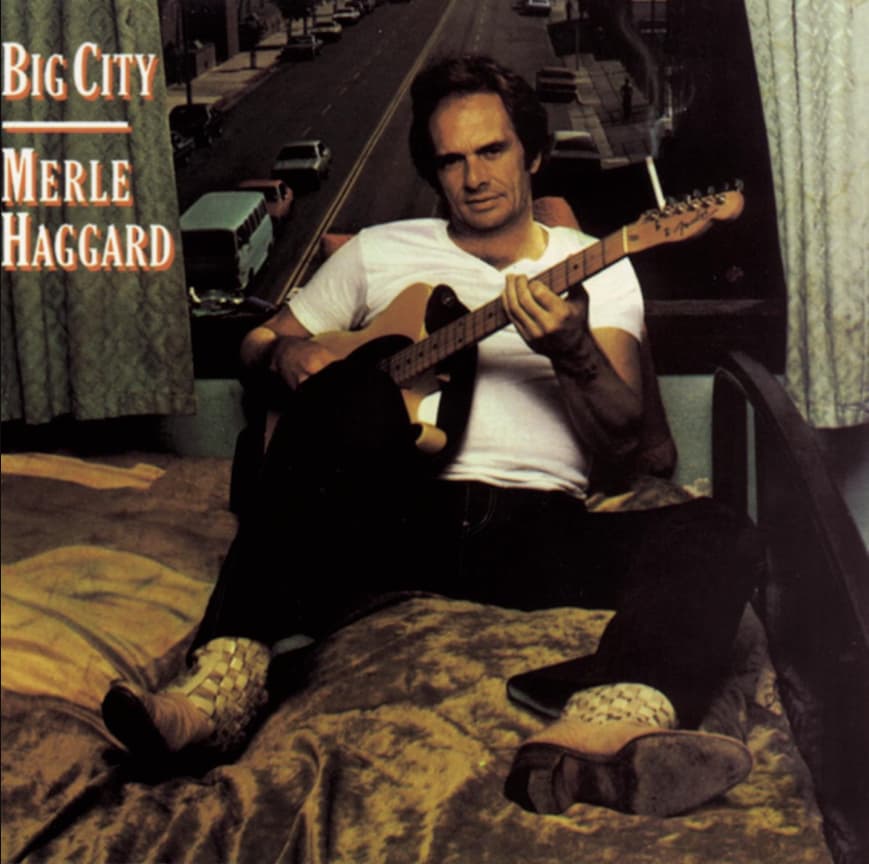
Merle Haggard – A Working Man’s Anthem in “Big City”
Merle Haggard’s “Big City” is a song that resonates deeply with the American working class, capturing the weariness, pride, and resilience of those who feel trapped in the relentless pace of urban life. Released in 1981, the song was a major success, hitting number one on the Billboard Hot Country Singles chart. Written by Haggard and backed by his band, The Strangers, “Big City” became an anthem for workers who long for escape from the grind, bringing Haggard’s iconic voice and honest storytelling to the forefront.
In “Big City,” Haggard plays the role of a weary laborer, looking to leave behind the noise, stress, and disillusionment of urban life. The song’s chorus reflects this desire directly: “Big City, turn me loose and set me free.” His straightforward and grounded lyrics convey a deep frustration with the pressures of city living, a sentiment familiar to many who struggle with the daily demands of modern life. Haggard speaks for those who dream of a simpler life, one where they can trade the concrete jungle for the open country and find freedom from societal expectations.
Haggard’s rich, baritone voice is a perfect fit for the song’s message, delivering each line with a tone that’s both weary and hopeful. His phrasing is smooth yet unpolished, embodying the sincerity and grit that have made him a country music legend. With “Big City,” Haggard doesn’t sugarcoat or embellish; he delivers the song with a raw authenticity that resonates with anyone who has ever felt the weight of work, expectations, and the longing for something more meaningful. This honesty is what gives the song its enduring appeal, as it captures the spirit of a man ready to reclaim control over his life.
The song’s melody and arrangement are rooted in traditional country, with gentle guitar riffs and a steady rhythm that create a laid-back, almost meditative atmosphere. The instrumentation is unpretentious and simple, allowing Haggard’s vocals and lyrics to take center stage. The guitar’s slow, deliberate strumming sets a reflective tone that feels like a breath of fresh air amid the hustle of city life, underscoring the song’s theme of wanting to escape to a quieter, simpler place.
Lyrically, “Big City” is grounded in the working man’s perspective, with lines like “Keep your retirement and your so-called Social Security” expressing a dissatisfaction with the conventional path society often prescribes. This defiance against conformity is a theme that has long been a part of Haggard’s music, and “Big City” encapsulates it perfectly. Haggard’s character in the song wants to live life on his terms, without being bound by the promises of security that society offers. Instead, he values freedom, nature, and simplicity—qualities that he feels are slipping away in the big city.
“Big City” was more than just a hit; it was a message to America during a time of economic hardship, resonating with many who felt forgotten and overworked. Haggard, known for his rough upbringing and life experiences, had an innate ability to speak to the “everyman” and to give voice to those who often felt overlooked. With this song, he tapped into the collective frustrations of a generation that felt left behind by the promises of urban life. Haggard’s empathy for the working class and his unwavering support for personal freedom and self-determination gave “Big City” a timeless quality that continues to speak to listeners even decades after its release.
The song’s influence extended beyond the country music charts. It became a symbol of the working class’s struggle and a reminder of the power of simplicity and authenticity. As Haggard sings about his desire to escape the “concrete canyons,” he invites listeners to reconnect with the values that matter most—family, nature, and self-determination. For Haggard, “Big City” wasn’t just a song; it was a declaration of independence from the fast-paced, material-driven society that had lost touch with these core principles.
In the end, Merle Haggard’s “Big City” remains a powerful anthem that speaks to anyone who has ever felt trapped by life’s demands. Through his storytelling, Haggard captures the universal yearning for a simpler, freer existence. The song’s enduring appeal lies in its message of resilience and authenticity, making it a testament to Haggard’s legacy as a voice for the working man. Whether you’re from a small town or a bustling metropolis, “Big City” reminds us all of the beauty and value in stepping back and finding peace on our own terms.